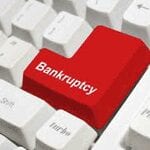

What is bankruptcy?
Bankruptcy: a person legally declares themselves or their business unable to pay outstanding debts. Depending upon the type of bankruptcy filed, a debtor meets with a judge to determine a payment schedule, or have a legal bankruptcy discharge most debts. Businesses may also declare bankruptcy which either means the business will close or the business will continue to operate with reduced payments to debtors.
Act of Bankruptcy: an act committed by a debtor as defined under the Bankruptcy and Insolvency Act. One of the most common is if a debtor ceases to meet his liabilities generally as they become due. A creditor with a minimum claim of $1000 may file a petition for a receiving order if the debtor has committed such an act within the six months preceding the filing of the petition.
Bankruptcy and Insolvency Act (BIA): a federal statute governing bankruptcy and insolvency in Canada which is applicable to all provinces and territories.
Contact Rumanek & Company Ltd. for more information on bankruptcy and debt solutions. Or please fill out the free bankruptcy evaluation form. To learn more please visit our YouTube Channel. Rumanek & Company have been helping individuals and families overcome debt for more than 25 years.


